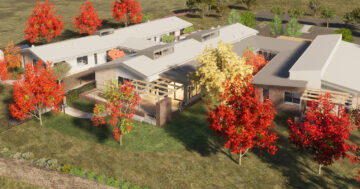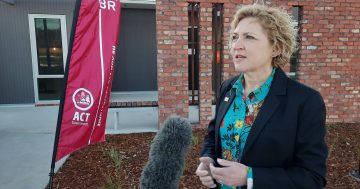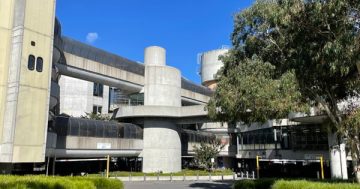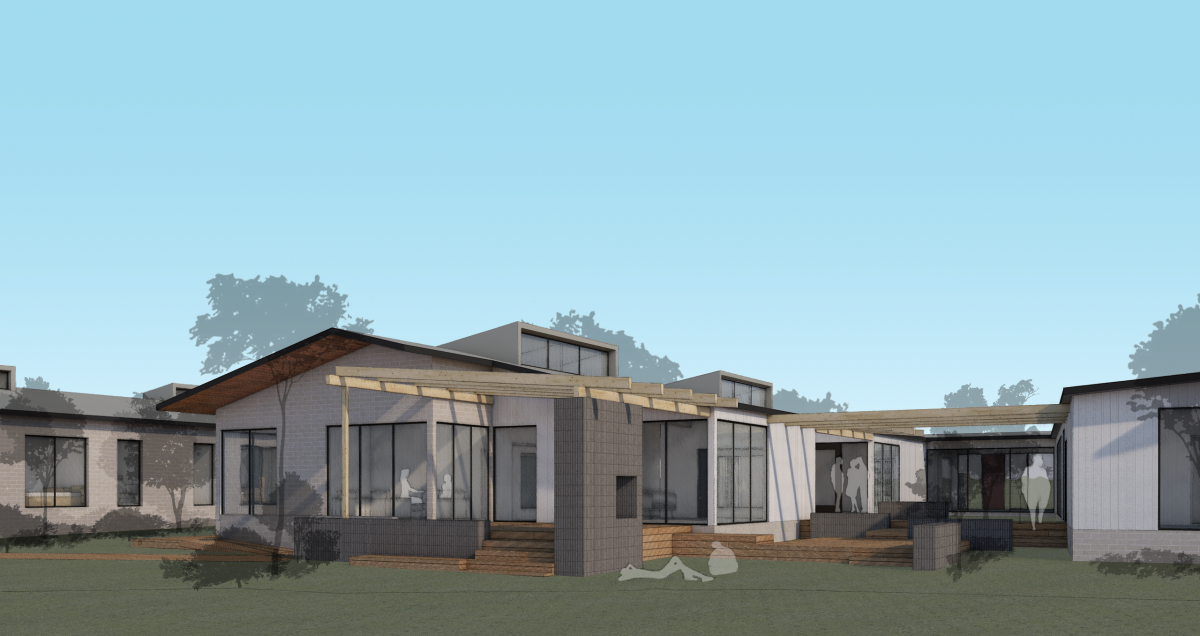
An artist’s impression of what the completed Coombs residential eating disorder centre could look like. Image: ACT Government.
The Territory government has at last procured a block of land in Coombs on which to build a residential eating disorder centre which was first announced three years ago.
It comes as the ACT Auditor-General derides a lack of available programs and services for children aged between birth and three years old and 13 and 17 years old for support with atypical eating or activity behaviours, weight gain and related health concerns.
In a report released yesterday (9 November), Auditor-General Michael Harris further highlighted how unmet demand and incomplete service delivery increased the risk of poor health outcomes for children.
Mr Harris said this could lead to increased costs and complexity of healthcare required later in life.
The Auditor-General was specifically looking into a five-year plan (2020 to 2025) to help the Territory’s children eat healthily.
The audit found while healthy eating programs were being well-received by schools and communities, it was not clear whether they were helping to actually increase healthy and active living.
It also determined that plan was not comprehensive enough and there was more demand for services than was being provided.
A lack of support for government staff in preventing weight stigma and discrimination was identified in the audit and it recommended this “missed opportunity”.
“Evidence from research, and from the lived experience of people with larger bodies, shows that weight stigma and discrimination can have serious negative impacts on people’s health and wellbeing,” the audit stated.
Canberrans living with an eating disorder have long spoken out about a lack of inpatient or acute hospital beds for adults, that community-based eating disorders services are at capacity and that psychologists, dieticians and GPs who specialise in these areas have long waiting lists.
Parents of young children with an eating disorder have questioned the lack of support provided to their children after being discharged from the hospital.
Government officials in annual reports hearings on Wednesday said there were support programs for children, but they must be medically well first and able to sustain some sort of nutrition after being discharged from hospital.
They acknowledged it was challenging to manage both the mental and physical health elements of an eating disorder and an in-reach clinician was currently being allocated to every young patient for four weeks to try to get them back into the eating disorder program after being medically stabilised.
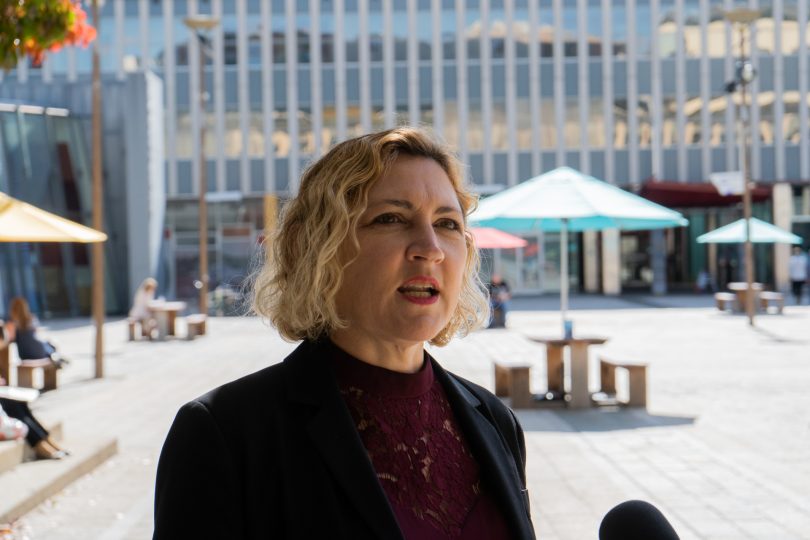
Mental Health Minister Emma Davidson said the residential eating disorder centre will help provide treatment in a non-medical setting for people who are recovering. Photo: Region.
The Territory’s future residential eating disorder centre will be built on Block 3, Section 17 in Coombs.
Mental Health Minister Emma Davidson said the location is close to nature, trees and a pond. It will take patients who are not acutely unwell, as well as those people who still require hospitalisation.
It’s expected to be completed in the financial year 2023-24 with a tender to go out for its construction in the coming weeks.
That’s a slightly looser timeline than the 2023 timeline which had previously been committed to.
She said that an early design for the centre was released earlier this year, and a development application will hopefully be lodged by the end of this year.
“People with lived experience, clinicians and non-government organisations have been clear that this centre will fill a significant gap – providing a calming home-like environment with specialised therapeutic support for people with eating disorders who sit between care delivered in the community and acute clinical care in hospital,” she said.
Ms Davidson acknowledged that support services in the Territory have been scarce, leading to some being unable to receive the necessary support.
She said work had been underway in the last few years to improve this, including by establishing a central intake service in January to help better coordinate resources and support services.
The Commonwealth Government is partly funding the centre and the first part of a three-year $13.5 million funding package was rolled out last financial year.












